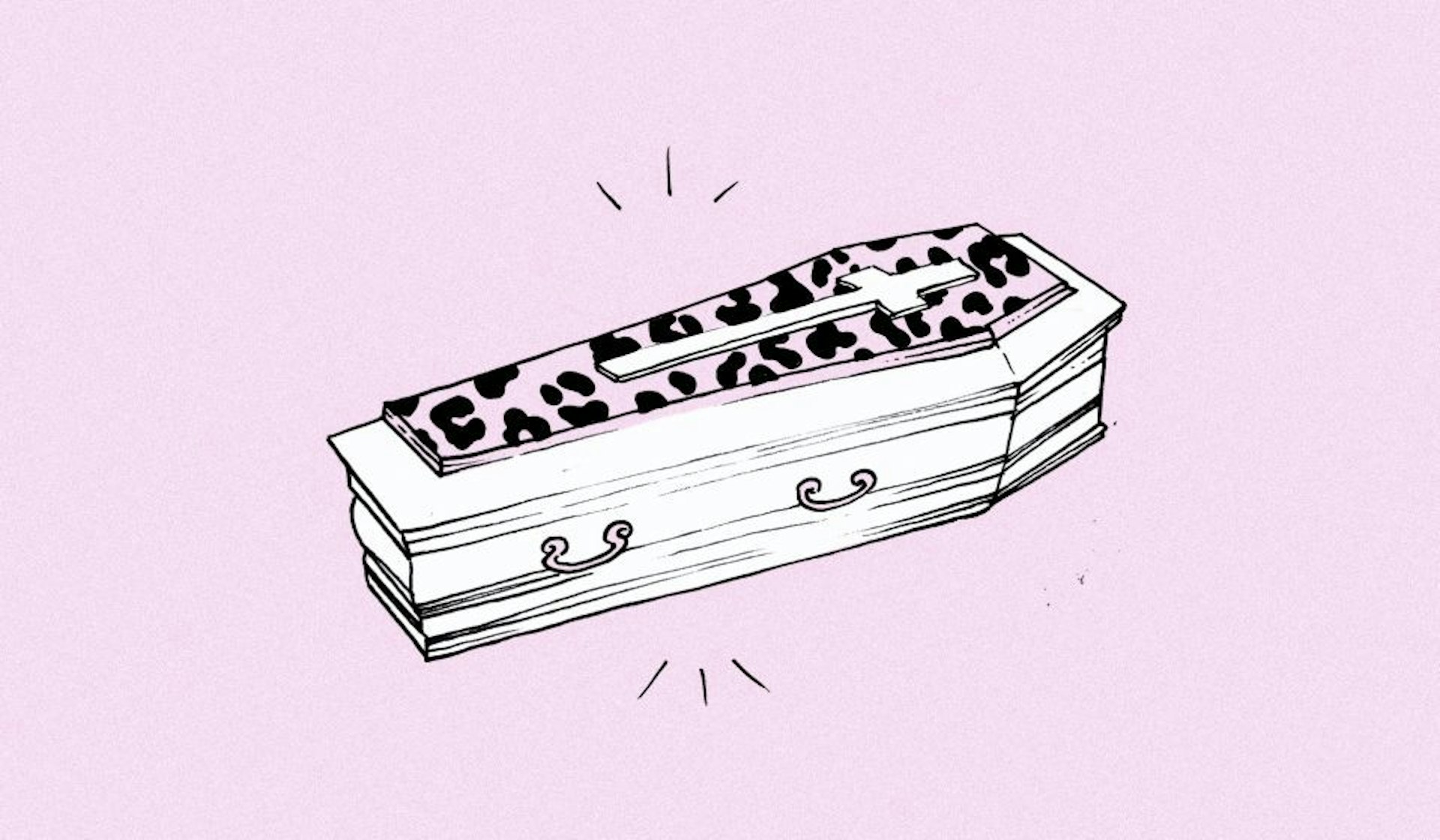
Facing death: why young people are writing wills
- Text by Daniel Reast
- Illustrations by Sophie Mo
This past year, death has gone from a bleak, unspoken taboo to a standard topic of conversation. We’ve watched with a mixture of anxiety, concern and morbid fascination as lines rise and fall, and death tolls grow. As the crisis rages on, claiming thousands of lives each day, is the pandemic changing people’s relationship with mortality?
A recent study from end-of-life online platform Aura would certainly seem to suggest this: it found that a third of Brits say their attitudes to death has changed as a direct result of Covid-19. The data also found that Gen Z is driving that shift: respondents were four times more likely than Boomers to plan ahead and make a bucket list. Millennials are also making more financial plans and are significantly more likely to discuss death with their children than their parents’ generation.
Writing a will is the legal keystone for facing death. It’s a document which outlines finance and property inheritance, but also health instructions for loved ones left behind. While it is typically more closely associated with older demographics, according to research from the fintech company Farewill, the pandemic has not only influenced more people to write wills, it has lowered the average age of people writing their will from 50 in 2019 down to 47.
Simon*, 28, based in the UK, wrote his will in October last year after buying his first flat, just as the second wave of Covid-19 was emerging. “After seeing friends and family members suffer with Covid-19, my whole perspective on making a will has changed,” he explains.
Simon says he’d “worked really hard to save up for three years, so it seemed like a good time to future proof”. While Simon may be part of an increasingly small minority of millennials able to buy a property, his decision reflects the prudence of young people writing wills out of good financial judgement, rather than just unfortunate necessity.
“I always thought a will was ‘nice to have’ and not that important, but life has felt much more fragile now, which has made me feel like I should be responsible,” Simon adds.
This awareness of life’s fragility appears to be a driving motivator for many young people writing wills. Farewill’s data even shows spikes in people writing wills on days of intense news: the day Boris Johnson was admitted to intensive care, for example, saw 2020’s biggest growth in wills being written. Last year, the biggest generational increase in will writing was from Gen Z, with 465 per cent more people writing a will than the previous year, followed by millennials, who saw an increase of 298 per cent.
Over the summer, young people were assailed in the press, being told to go out, work and spend money to boost the economy, while simultaneously accused of being responsible for the virus spreading further. But as the data from Farewill shows, the idea that young people are less committed or grounded in responsibility is simply incorrect.
Even before the pandemic, millennials and Gen Z have been dubbed the “death positive generation,” with an uptick in young people planning their own funerals. Still, there are few resources tailored to young people looking to prepare for death. Chelsea, 28, from London, was motivated to write a will after her father died suddenly following a stroke without finalising a will. “I found the process of researching a will quite difficult,” she says. “A lot of the advice I came across was clearly not aimed at someone like me, a young person with nothing left to leave.”
“The reality is, if you don’t have many assets, you might feel a bit silly speaking to a solicitor,” says Vicky, who is from the West Midlands, who wrote her will at age 28. This, however, should not dissuade young people from the task. “It’s our personal responsibility to get these things in order and not bury our heads in the sand.”
“Young people, and plenty of older people too, think that by talking about preparing for end-of-life or death that you’re willing it to happen almost, but it’s inevitable,” Vicky continues. While it is unlikely that for most young people property will form part of their will, there’s still other important matters of sentimental value and planning to consider.
The idea that young people are individual atoms, unchained and without links or loves, simply isn’t true. Will writing, according to Vicky, is not all about handing over deeds and selling houses, but more personal affairs such as funerals, sentimental items and pets too.
Sorcha, from Scotland, tells Huck that her husband, who passed away suddenly at 29, rewrote his will after they married to include his wife. “It’s a good job he did a second one, seeing as he died so suddenly,” she says. When asked whether all young people should write wills, she responded: “Yes, absolutely. You never know what will happen.” This was a theme echoed by the young people Huck spoke to: how the suddenness of death is reason enough to think about wills. Covid has only reinforced this fear.
Our thoughts about death are changing. Seeing the news of body bag shortages, mass graves being dug and temporary mortuaries in ice rinks places something we’re intrinsically scared of in a harsher light. The wills themselves aren’t a vaccine to any grim fate, but young people are seeing them not simply as the final mark, but as a motion beyond life.
*Name changed to protect identity
Follow Daniel Reast on Twitter.
Enjoyed this article? Like Huck on Facebook or follow us on Twitter.
